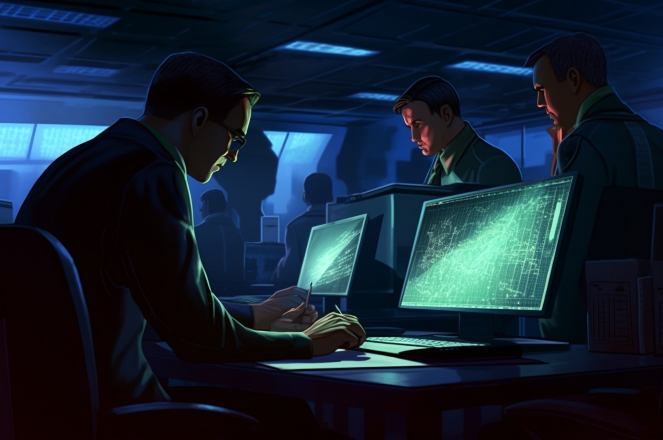NVIDIA CEO Jensen Huang: AI Won't Eliminate Jobs, It Will Transform Them
As artificial intelligence continues its rapid advancement, debates about its potential to displace workers have reached fever pitch. NVIDIA CEO Jensen Huang recently weighed in on the discussion with a reassuring message: while AI will undoubtedly change the job landscape, mass unemployment isn't inevitable.
 Image source note: Image generated by AI, image authorization service provider Midjourney
Image source note: Image generated by AI, image authorization service provider Midjourney
Huang acknowledged that certain professions—particularly entry-level white-collar positions and even programming roles—face disruption from AI technologies. However, he pushed back against doomsday predictions suggesting half of these jobs might disappear. "The future isn't about replacement," Huang emphasized, "it's about transformation."
Data supports Huang's perspective. Since early 2023, demand for easily automated IT and data engineering roles has declined nearly twice as fast as other occupations. This shift reveals how quickly AI is reshaping labor markets—but Huang sees this as an opportunity rather than a crisis.
For young professionals navigating this changing landscape, Huang offers clear guidance: pivot toward industries with durable human value. He highlights biology, education, manufacturing, and agriculture as fields where AI will complement rather than replace human workers. These sectors combine technical complexity with real-world physical interaction—areas where humans maintain decisive advantages.
"Think beyond coding," Huang advised. "The next generation of innovators will need to understand how technology intersects with biology, how automation enhances manufacturing, and how digital tools can revolutionize education."
The NVIDIA CEO's comments arrive as businesses worldwide grapple with AI integration. Some companies have reduced technical hiring while investing heavily in AI systems. Others are retraining employees for hybrid roles that combine traditional skills with AI management capabilities.
What does this mean for today's students and early-career professionals? Rather than fearing obsolescence, they should view AI as a powerful collaborator. The most successful workers won't compete against algorithms—they'll leverage them to solve problems machines can't tackle alone.
Huang's vision suggests a future where human creativity directs AI capabilities toward meaningful challenges. As routine tasks become automated, uniquely human skills—critical thinking, emotional intelligence, and interdisciplinary problem-solving—will grow more valuable than ever.
Key Points
- AI will transform rather than eliminate most jobs, creating new hybrid roles
- Biology, education, manufacturing and agriculture offer strong long-term career prospects
- Demand for easily automated IT roles is declining faster than other occupations
- Future success requires combining technical knowledge with irreplaceable human skills